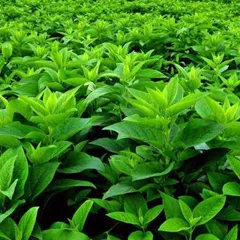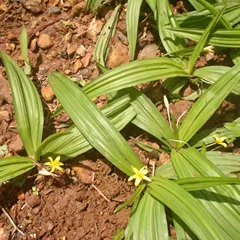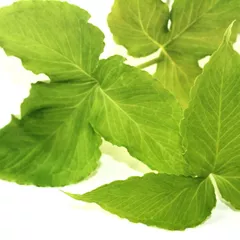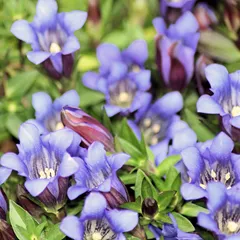Hyperthyroid according to Chinese Medicine
The information provided here is not a replacement for a doctor. You shouldn't use it for the purpose of self-diagnosing or self-medicating but rather so you can have a more informed discussion with a professional TCM practitioner.
Hyperthyroid factsheet
Possible causes and remedies:
Symptoms: Thirst Dry mouth Dizziness and five other symptoms
Recommended formula: Zeng Ye Tang
Kidney and Liver Yin Deficiency
Symptoms: Vertigo Tinnitus Night sweats and five other symptoms
Recommended formula: Liu Wei Di Huang Wan
In Chinese Medicine, hyperthyroid can be associated with five so-called "patterns of disharmony". Chinese Medicine sees the body as a system, not a sum of isolated parts. A "pattern" is when the system's harmony is disrupted. It is not equivalent to the Western concept of "disease", as a matter of fact here hyperthyroid can be caused by five different patterns.
To understand whether someone's hyperthyroid might be caused by a given pattern, one needs to look for signs and symptoms associated with the pattern beyond what one might typically experience from hyperthyroid alone. For instance when hyperthyroid is caused by the pattern Dryness in Large Intestine, patients also experience symptoms such as constipation, thirst, dry stools and dry mouth. Similarly, patients with Dryness in Large Intestine typically exhibit fine (Xi) pulses as well as a pale, red tongue.
We've listed below a description of the five patterns associated with hyperthyroid so that you can start to get an understanding of the various possibilities according to Chinese Medicine.
Once identified, patterns are often treated using herbal formulas. Drinking herbal infusions is the most common remedy in Chinese Medicine, together with acupuncture. Here we detail below six formulas that can help treat the various patterns associated with hyperthyroid, depending on which pattern fits your profile.
The five "patterns of disharmony" associated with hyperthyroid
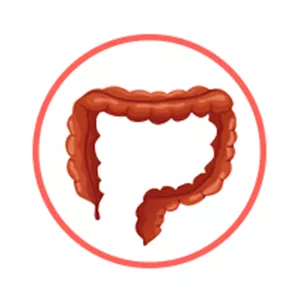
The Large Intestine is a so-called "Fu" Organ. Learn more about the Large Intestine in Chinese Medicine
Dryness in Large Intestine
Pulse type(s): Fine (Xi)
Tongue color: Pale, Red
Recommended herbal formula: Zeng Ye Tang
Symptoms: Thirst Dry mouth Dizziness Dry stools Dry throat Bad breath Constipation Thin body lacking strength
Hyperthyroid might be due to Dryness in Large Intestine if the condition is paired with typical pattern symptoms such as constipation, thirst, dry stools and dry mouth. Similarly, patients with Dryness in Large Intestine typically exhibit fine (Xi) pulses as well as a pale, red tongue.

The Kidneys is a so-called "Zang" Organ. Learn more about the Kidneys in Chinese Medicine
Kidney and Liver Yin Deficiency
Pulse type(s): Fine (Xi), Rapid (Shu)
Tongue coating: Partial absence of coating
Tongue color: Red
Recommended herbal formula: Liu Wei Di Huang Wan
Symptoms: Vertigo Tinnitus Night sweats Lightheadedness Diminished hearing Chronic sore throat Spontaneous and nocturnal emissions Soreness and weakness in the lower back
Hyperthyroid might be due to Kidney and Liver Yin Deficiency if the condition is paired with typical pattern symptoms such as soreness and weakness in the lower back, lightheadedness, vertigo and tinnitus. Similarly, patients with Kidney and Liver Yin Deficiency typically exhibit fine (Xi) or rapid (Shu) pulses as well as a red tongue with partial absence of coating.

The Kidneys is a so-called "Zang" Organ. Learn more about the Kidneys in Chinese Medicine
Deficiency of both the Kidney Yin and Yang
Recommended herbal formula: Er Xian Tang
Symptoms: Fatigue Sweating Lassitude Depression Hot flushes Hypertension Irritability Palpitations Frequent urination Menopausal symptoms Irregular menstruation
Hyperthyroid might be due to Deficiency of both the Kidney Yin and Yang if the condition is paired with typical pattern symptoms such as menopausal symptoms, hypertension, irregular menstruation and hot flushes.
Read more about Deficiency of both the Kidney Yin and Yang here
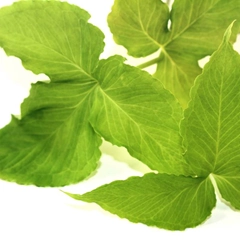
Crow-Dipper Rhizomes (Ban Xia) is the key herb for Ban Xia Hou Pu Tang, a formula used for Qi-Phlegm
Qi-Phlegm
Pulse type(s): Slippery (Hua), Wiry (Xian)
Tongue coating: Thick white coating
Recommended herbal formula: Ban Xia Hou Pu Tang
Symptoms: Difficulty swallowing Stuffiness of chest and diaphragm Feeling of a lump in the throat which comes and goes
Hyperthyroid might be due to Qi-Phlegm if the condition is paired with typical pattern symptoms such as difficulty swallowing, feeling of a lump in the throat which comes and goes and stuffiness of chest and diaphragm. Similarly, patients with Qi-Phlegm typically exhibit slippery (Hua) or wiry (Xian) pulses as well as a tongue with thick white coating.
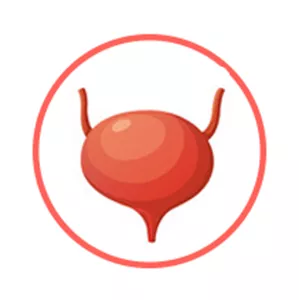
The Bladder is a so-called "Fu" Organ. Learn more about the Bladder in Chinese Medicine
Heat Excess in the Liver or Gallbladder
Pulse type(s): Full (Shi)
Tongue coating: Yellow coating
Tongue color: Red
Recommended herbal formula: Long Dan Xie Gan Tang
Symptoms: Headaches Dizziness Irritability Short temper Red and sore eyes Painful urination Diminished hearing Swelling in the ears Foul-smelling leukorrhea Bitter taste in the mouth Fixed pain in the hypochondria Shortened menstrual cycle in women Swollen and itchy external genitalia
Hyperthyroid might be due to Heat Excess in the Liver or Gallbladder if the condition is paired with typical pattern symptoms such as fixed pain in the hypochondria, headaches, dizziness and red and sore eyes. Similarly, patients with Heat Excess in the Liver or Gallbladder typically exhibit full (Shi) pulses as well as a red tongue with yellow coating.
Read more about Heat Excess in the Liver or Gallbladder here
The six herbal formulas that might help with hyperthyroid
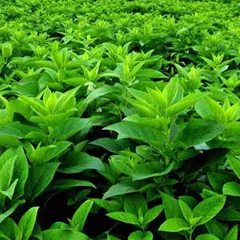
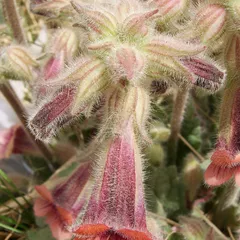

The top herbs in Zeng Ye Tang are Ningpo Figwort Roots (Xuan Shen), Unprepared Rehmannia (Di Huang) and Dwarf Lilyturf Roots (Mai Dong)
Zeng Ye Tang
Source date: 1798 AD
Number of ingredients: 3 herbs
Key actions: Nourishes Yin and Essence. Lubricates Dryness.
Why might Zeng Ye Tang help with hyperthyroid?
Because it is a formula often recommended to help treat Dryness in Large Intestine, a pattern sometimes associated with hyperthyroid. If it looks like you might suffer from Dryness in Large Intestine, this formula might help (although please seek confirmation with a professional practitioner beforehand).


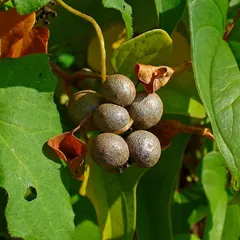
The top herbs in Liu Wei Di Huang Wan are Prepared Rehmannia (Shu Di huang), Cornelian Cherries (Shan Zhu Yu) and Yam (Shan Yao)
Liu Wei Di Huang Wan
Source date: 1119 AD
Number of ingredients: 6 herbs
Key actions: Enriches the yin and nourishes the Kidneys.
Why might Liu Wei Di Huang Wan help with hyperthyroid?
Because it is a formula often recommended to help treat Kidney and Liver Yin Deficiency, a pattern sometimes associated with hyperthyroid. If it looks like you might suffer from Kidney and Liver Yin Deficiency, this formula might help (although please seek confirmation with a professional practitioner beforehand).
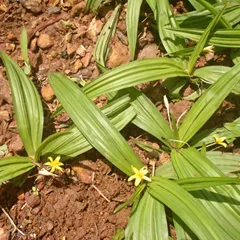
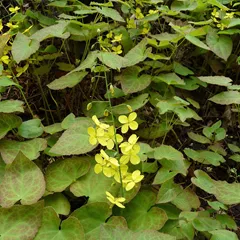
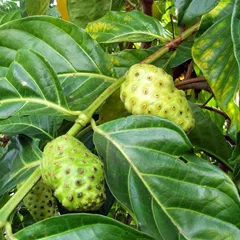
The top herbs in Er Xian Tang are Curculigo Rhizomes (Xian Mao), Epimedium Herbs (Yin Yang Huo) and Morinda Roots (Ba Ji Tian)
Er Xian Tang
Source date: 1950 AD
Number of ingredients: 6 herbs
Key actions: Nourishes Yin and tonifies Yang of the Kidneys. Clears Empty Heat. Regulates the Directing and Penetrating Vessels.
Why might Er Xian Tang help with hyperthyroid?
Because it is a formula often recommended to help treat Deficiency of both the Kidney Yin and Yang, a pattern sometimes associated with hyperthyroid. If it looks like you might suffer from Deficiency of both the Kidney Yin and Yang, this formula might help (although please seek confirmation with a professional practitioner beforehand).
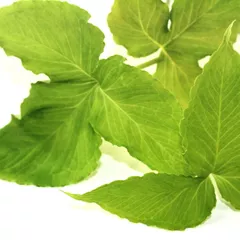

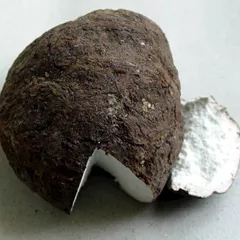
The top herbs in Ban Xia Hou Pu Tang are Crow-Dipper Rhizomes (Ban Xia), Houpu Magnolia Bark (Hou Pu) and Poria-Cocos Mushrooms (Fu Ling)
Ban Xia Hou Pu Tang
Source date: 220 AD
Number of ingredients: 5 herbs
Key actions: Regulates the flow of Qi, treats esophageal spasm. Clears Phlegm.
Why might Ban Xia Hou Pu Tang help with hyperthyroid?
Because it is a formula often recommended to help treat Qi-Phlegm, a pattern sometimes associated with hyperthyroid. If it looks like you might suffer from Qi-Phlegm, this formula might help (although please seek confirmation with a professional practitioner beforehand).
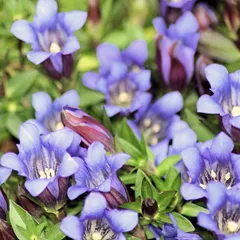
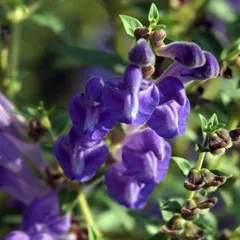

The top herbs in Long Dan Xie Gan Tang are Chinese Gentian (Long Dan Cao), Baikal Skullcap Roots (Huang Qin) and Cape Jasmine Fruits (Zhi Zi)
Long Dan Xie Gan Tang
Source date: 1682 AD
Number of ingredients: 10 herbs
Key actions: Clears Heat and Fire from the Liver and Gallbladder. Clears and drains Damp-Heat from the Lower Burner.
Why might Long Dan Xie Gan Tang help with hyperthyroid?
Because it is a formula often recommended to help treat Heat Excess in the Liver or Gallbladder, a pattern sometimes associated with hyperthyroid. If it looks like you might suffer from Heat Excess in the Liver or Gallbladder, this formula might help (although please seek confirmation with a professional practitioner beforehand).


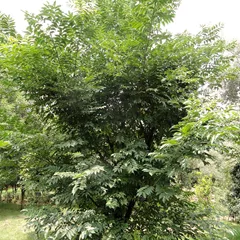
The top herbs in Da Bu Yin Wan are Prepared Rehmannia (Shu Di huang), Tortoise Plastrons (Gui Ban) and Phellodendron Bark (Huang Bo)
Da Bu Yin Wan
Source date: 1481 AD
Number of ingredients: 4 herbs
Key actions: Enriches the Yin. Directs fire downward.
Why might Da Bu Yin Wan help with hyperthyroid?
Because it is a formula often recommended to help treat , a pattern sometimes associated with hyperthyroid. If it looks like you might suffer from , this formula might help (although please seek confirmation with a professional practitioner beforehand).
Symptoms related to hyperthyroid
Dizziness Diminished hearing Irritability Constipation Thirst Dry stools Dry mouth Dry throat Thin body lacking strength Bad breath


